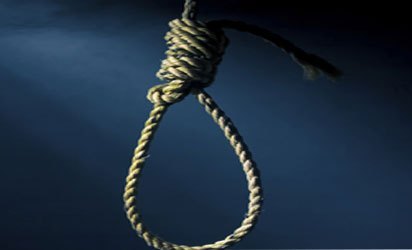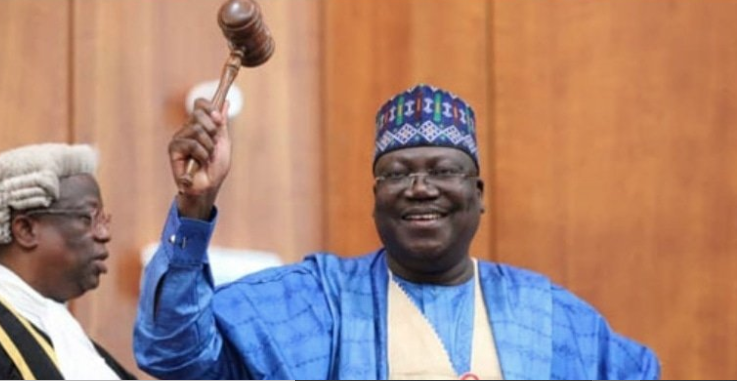Justice Hakeem Oshodi, on Tuesday sentenced one Clement Ododomu to death by hanging and one Tiwei Monday to 16 years in a correctional centre.
Oshodi delivered the judgement after careful considerations of facts before the court and the demeanor of the convicts, which he termed as ‘unremorseful’.
The judge said that the allocutus by the Defence Counsel, Mr Olusegun Akande, who had on Oct. 11, prayed the court to temper justice with mercy, was replied by the Director, Department of Public Prosecutions (DPP), Dr Babajide Martins.
The convicts, who are vandals, were arraigned for killing seven officers of the Department of State Services (DSS) in the Ikorodu area of the state.
Oshodi said that Martins had told the court that the offences by the Defendants were grave and that the court should apply the maximum sentences available.
The judge said: “The court has considered the allocutus of the defence counsel, but the position of the law is binding to us all. As noted, the first defendant was convicted on counts one, five, seven, nine and ten, while the second defendant was convicted on counts one and ten.
“This is as contained in the information filed dated January 13, 2017. The provisions of this sections of the law are as follows:
“Count I, the count convicted the first and second defendants on the count –
“This count is brought contrary to Section 233 of the Criminal Laws of Lagos State 2015, liable to a conviction of 14 years.
“On counts five and seven, the first defendant on these counts, which is contrary to Section 233 of the Criminal Laws of Lagos State, 2015, provides that any one who commits murder shall be sentenced to death.”
According to Oshodi, on count nine, the first defendant is brought under Section 298 (3) of the Criminal Laws of Lagos State, 2015, hence, liable to not less than 14 years but not more than 20 years imprisonment.
Also, on count 10, both the first and second defendants were convicted under Section 410 of the Criminal Laws of Lagos State, 2015 and is liable to two years imprisonment.
According to him, the claim of the defence that the defendants were in Lagos for the funeral of their grandmother was a ruse.
Oshodi held that the defence failed to provide essential witnesses to corroborate the claim.
He, however, held that prosecution was not able to prove that the second defendant was guilty of murder.
Oshodi said that evidence before the court showed that it was one Agbala and the first defendant who killed the operatives.
He held that the prosecution was able to prove that the two defendants participated in the ambush of the operatives.
He, therefore, discharged and acquitted the convicts on counts two, three, four, six and eight because the prosecution was unable to prove the allegations against them.
Justice Oshodi said: “The court has observed the demeanor of the defendants and came to the conclusion that they felt no remorse with regards to the allegations they were facing.
“They informed the court that they do not understand English language, whereas, in the recording, they both were conversing in English.
“The first and second defendants are hereby sentenced to imprisonment for 14 years for count 10 and the first and second defendants are hereby sentenced to imprisonment for two years for count 9.
“The first defendant is hereby sentenced to imprisonment for 20 years. The terms of imprisonment for both defendants will run concurrently.
“For count five and seven, which the court has found the first defendant guilty, the sentence of the court upon you is that you be hanged by the neck until you be dead and may God have mercy on your soul,” he said
The Lagos State Government had submitted that DSS received a distress call from an editor of Sun newspaper (name withheld) on Sept. 14, 2015, about the kidnap of his wife at their residence.
It was said that the state command of the DSS consequently dispatched a nine-man team to carry out surveillance to ascertain the location of the kidnappers who were negotiating for a ransom.
Prosecution added that it was reported that in the evening of that day, one of the DSS team members, Mr Martins Ajayi, sent a distress text message to the command headquarters to the effect that the team had been ambushed by vandals and their weapons seized.
According to prosecution, the convicts committed the offences on Sept. 14, 2015, in Ishawo Creek, Ikorodu, Lagos.
The convicts were arraigned on a 10-count charge bordering on conspiracy to commit murder, murder and illegal possession of firearms, contrary to Section 223 and 298 (3) of the Criminal Law of Lagos State, 2015.






